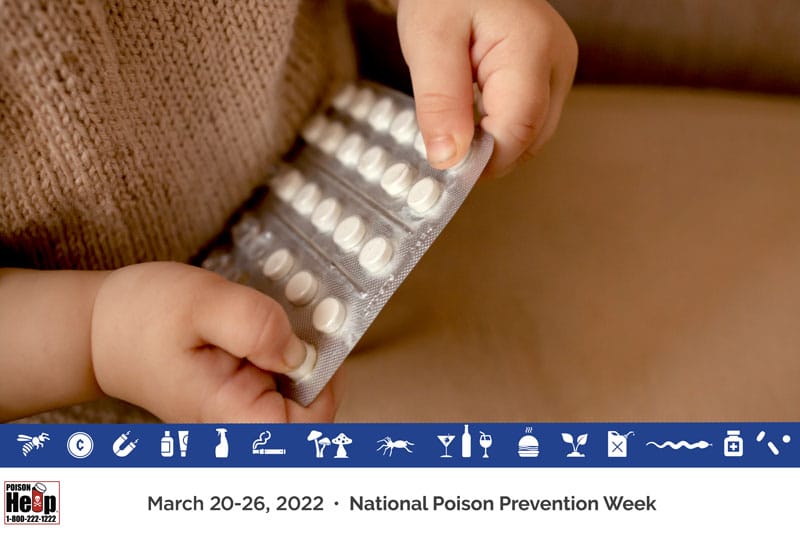What are the 3 Most Common Toxic Substances in Your House?

The most frequently reported cases of poisonings involve toxic substances most of us have around our homes.
The scope of the problem
The Illinois Poison Center logs over 74,000 calls on poisoning exposures each year. Poison centers across the nation manage over 2.1 million cases each year.
It may surprise you that 90% of these incidents occur in the home. Furthermore, some of the most common exposures involve toxic substances we all use or come in contact with relatively often.
Here are the three toxic substances you are most likely to have in your house
- Medications - Drugs can do many positive things to improve the quality and length of life. However, they can quickly become hazardous in the wrong dosage or for those who “borrow” drugs and medications prescribed for others.According to the CDC, 91% of unintentional poisoning deaths are due to drugs and medications. Today, we know that the type of medication that causes the most deaths, by far, is prescription pain medications (opioids).
- Drain Cleaners - Drain cleaners are dangerous because they are “caustic,” meaning they can corrode, burn, or destroy bodily tissues. They can cause severe damage to the body unless there is immediate medical intervention.Damage from drain cleaners can occur through ingestion, skin contact, or inhalation. For example, one tiny sip of these products can seriously damage the esophagus, stomach, and intestinal tract tissues.
- Windshield Washer Fluid (methanol and ethylene glycol) - You likely have a big plastic jug of this cleaner in your garage (if you own a car). If so, you probably don’t think about the potential problems with this bright blue fluid.
It doesn’t take much of this stuff to do serious harm. Accidentally ingesting even a small amount of windshield washer fluid can be fatal to an adult.In fact, ingesting less than a fatal amount could cause permanent blindness. The liver turns methanol into another chemical that can damage the eyes and makes blood more acidic.
What can you do?
We’re not suggesting that you rid your house of all of these items. However, Illinois Poison Center offers some tips on what you can do to help your family stay safe.
- Never take a larger dosage of medicine than instructed by your physician
- Don’t share medications with others
- Prevent harmful drug interactions. Inform your doctor and pharmacy of all the medications you are taking, including over-the-counter drugs and herbals supplements.
- Always use child-resistant caps. Just remember, they are child-resistant, not child-proof.
- Store all your medications and household products in their original containers. They should be stored away from food products, kept secure and out of the reach of children.
- Always use cleaners and household chemicals as instructed on the label.
- Never mix cleaning products or household chemicals; such mixtures can result in toxic gases.
- Call the poison center at 1-800-222-1222 immediately if you think someone suffers from exposure to any potentially harmful substance or poison. Experts are available to help, 24-7.

